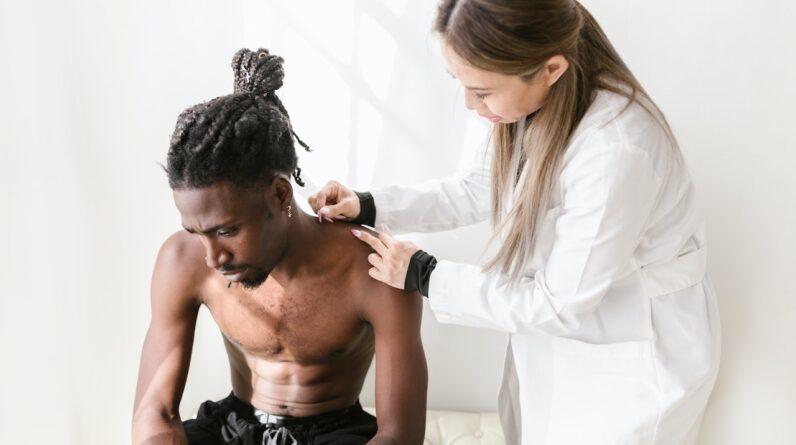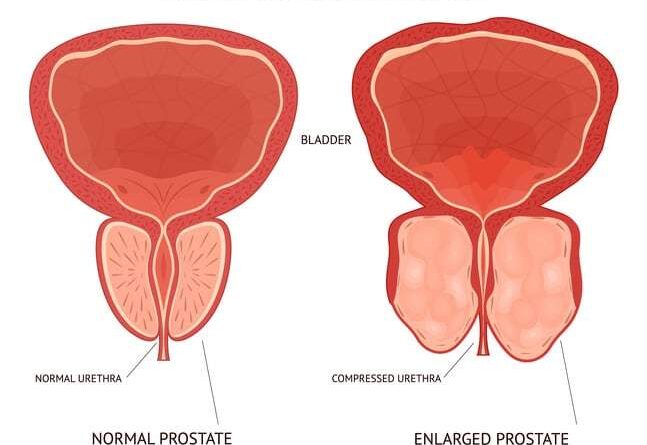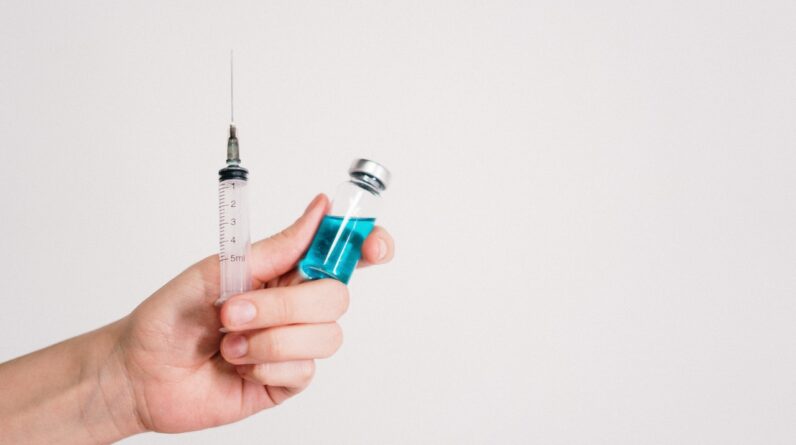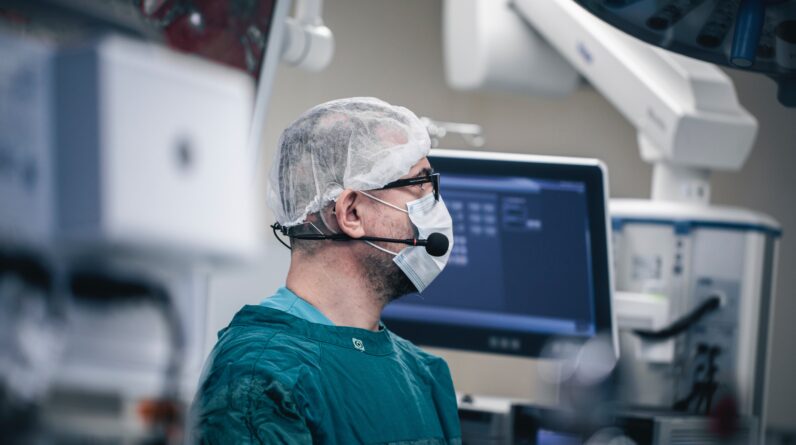
Introduction
Have you ever heard of using acupuncture to manage prostate problems? If this sounds like an alien concept to you, don’t worry, you’re not alone. This article will shed some light on the intriguing topic of acupuncture, prostate problems, and how the former can help with the latter.
What is Acupuncture?
In a nutshell, acupuncture is an age-old traditional Chinese medicinal practice that entails inserting thin needles into specific points on the body. The core belief is that these points can help balance the body’s energy flow, or “qi,” and promote healing.
Understanding Prostate Problems
The prostate is a small but essential gland in men’s reproductive systems. It can be prone to problems, especially as men age. Common issues include prostatitis, prostate cancer, and benign prostatic hyperplasia (BPH), also known as an enlarged prostate.
Symptoms of Prostate Problems
Prostate problems can result in various uncomfortable symptoms, including frequent urination, pain or difficulty while urinating, and lower back pain, among others.
Acupuncture for Prostate Problems
Various studies suggest that acupuncture can help manage symptoms of prostate problems. It’s a natural, non-invasive method that has been known to provide relief for various health conditions.
The Science Behind Acupuncture for Prostate Problems
Acupuncture is believed to stimulate the nervous system, releasing biochemicals that can alleviate pain and stimulate self-healing. For prostate problems, it may help reduce inflammation and improve urinary function.
Procedure of Acupuncture for Prostate Problems
During an acupuncture session, a practitioner will insert needles at precise acupuncture points. The needles are typically left in place for some time, ranging from 10 to 30 minutes.
Acupuncture Points for Prostate Problems
Certain acupuncture points are targeted for prostate problems. Let’s explore some of them.
Point 1: CV6
CV6, also known as the Sea of Energy, is located two finger-widths below the belly button. It’s known to help with urinary disorders.
Point 2: B23 and B28
The B23 and B28 points, also known as the Sea of Vitality, are located in the lower back, helping with lower back pain and urinary discomfort.
Point 3: ST 28 and SP 6
ST 28, also known as Water Passage, is located on the lower abdomen, while SP 6, also known as the Three Yin Intersection, is found inside the leg above the ankle. These points are believed to assist with urinary health and overall wellness.
Point 4: LV 5
Located above the ankle on the inner side of the leg, LV 5, also known as the Ligou, can help address issues related to the lower abdomen, including the prostate.
Benefits and Risks of Acupuncture
Acupuncture may provide several benefits for prostate health, including reduced inflammation, improved urinary function, and reduced pain. However, as with any treatment, there can be risks, which may include slight bleeding, bruising, and dizziness. Always seek treatment from a qualified professional to minimize these risks.
In Conclusion
Acupuncture can serve as a supplementary treatment for prostate problems, providing some relief from symptoms. Always consult with your healthcare provider before starting any new treatment regimen.
FAQs
1. Can acupuncture cure prostate problems? While acupuncture may help alleviate symptoms of prostate problems, it should not be seen as a cure but rather a complementary therapy.
2. Is acupuncture painful? Most people do not find acupuncture painful as the needles are very thin. Some people report a slight pricking sensation upon needle insertion.
3. How many acupuncture sessions will I need for prostate problems? The number of sessions required can vary based on individual circumstances and the severity of symptoms. Your acupuncturist will be able to provide a more accurate estimate after consultation.
4. Are there any side effects of acupuncture? While generally considered safe, some people might experience minor bruising, bleeding at the needle sites, or dizziness.
5. Can acupuncture prevent prostate problems? While acupuncture might help with symptom management and overall wellness, there is not enough evidence to suggest it can prevent prostate problems.
Remember, it’s important to seek professional advice before starting any new health treatment, including acupuncture. Stay healthy and well-informed! Certainly! Here are some more frequently asked questions about acupuncture and prostate health:
6. Can I use acupuncture as my only treatment for prostate problems? While acupuncture can provide relief from symptoms, it should not replace conventional medical treatments for prostate problems. It is best used as a complementary therapy alongside your prescribed treatment plan.
7. How long does each acupuncture session last? An acupuncture session usually lasts between 20 to 60 minutes. However, the duration can vary depending on the individual’s needs and the acupuncturist’s recommendation.
8. Can everyone receive acupuncture treatment? Most people can receive acupuncture treatment. However, it might not be suitable for individuals with certain conditions, such as those with a bleeding disorder or those using blood thinners. Always consult with your healthcare provider before starting acupuncture.
9. Does insurance cover acupuncture? Some insurance plans do cover acupuncture, but this greatly depends on the provider and the specifics of your plan. It’s recommended to check with your insurance company to understand your coverage.
10. Can I perform acupuncture on myself for prostate problems? Self-administration of acupuncture is not recommended. Acupuncture is a professional practice that requires precise knowledge of the human body’s meridians and pressure points. Always seek treatment from a trained, licensed acupuncturist.
Remember, always consult with a healthcare professional for advice before starting new treatments or therapies.







